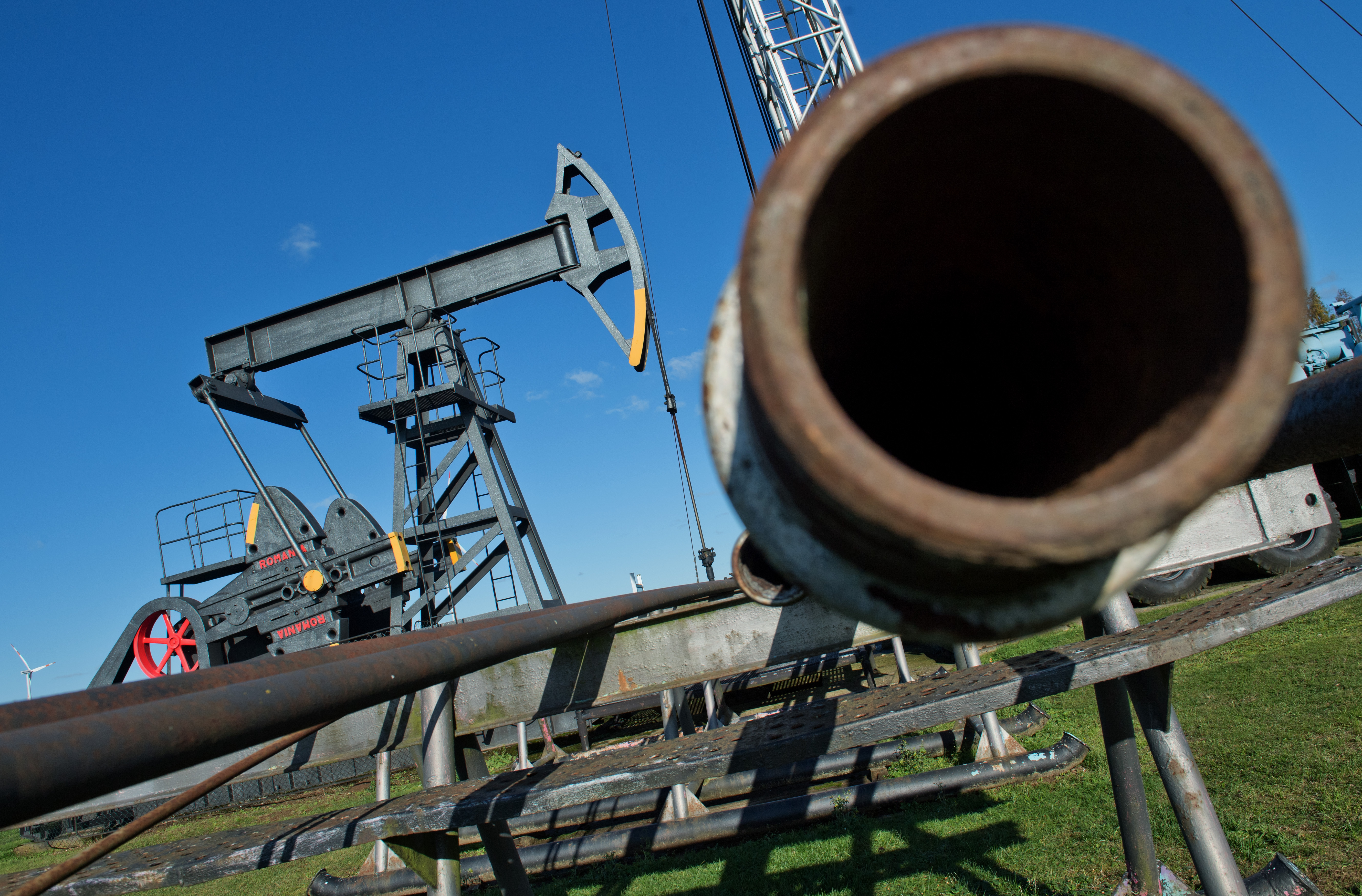The Hidden Signs That the Oil Industry Is Heading for a Reckoning

Credit to Author: Geoff Dembicki| Date: Fri, 03 Jan 2020 13:40:56 +0000
A major U.S. oil and gas producer whose business model is premised on denying the urgency of global temperature rise was forced last month to acknowledge reality. In a move that reverberated across the financial world, Chevron, a funder of campaigns disputing the need for aggressive climate change policies, announced that up to $11 billion worth of its fossil fuel projects are effectively worthless.
"We have to make the tough choices," the company's CEO Mark Wirth told the Wall Street Journal. He blamed the company's massive write-down on a global oversupply of oil and gas that made drilling in places like Appalachia and the Gulf of Mexico unprofitable.
But there's more to the story than that. Despite the millions of dollars oil and gas companies are spending to slow and delay action on climate change, the world is shifting decisively away from fossil fuels, and the painful financial impacts are impossible for the planet's worst polluters to deny. In other words, Big Oil could be in much more trouble than it wants to admit.
In early October, BP wrote down up to $3 billion of its fossil fuel assets. That was followed a week later by a gigantic $12.4 billion write-down linked to shale oil drilling from the oil field services giant Schlumberger. And in December, the Spanish oil and gas giant Repsol cut $5 billion worth of climate-damaging projects. Though each of these was due to unique company circumstances, observers also see the write-downs as previews of a much larger financial reckoning.
"It's a sign," said Danielle Fugere, president of the shareholder advocacy group As You Sow. "There will certainly be much larger write-downs in the future if companies aren't preparing for the low-carbon [transition]."
That might be an understatement, however. We are potentially only years away from the oil and gas industry entering a punishing financial spiral that wreaks hundreds of billions of dollars in damages. That was the warning of a recent report from the United Nations-backed group Principles for Responsible Investment (PRI), which predicted by the year 2025 that 10 of the world's largest oil and gas companies could collectively lose a third of their value.
"When oil demand goes down in our scenario, oil prices will fall with it," said Thomas Kansy, principal of the group Vivid Economics, which did the modeling for the PRI report. "The market for their product is disappearing."
The conventional wisdom from companies such as Chevron is that the global shift away from atmosphere-trashing energy sources will be slow and gradual with massive amounts of oil and gas still consumed by the world decades from now. And the spectacular failure of the recent international climate talks in Madrid, where countries couldn’t reach consensus on a plan for preventing doomsday levels of warming, certainly falls in line with that narrative.
But forces threatening the oil and gas business model are undeniable. Renewables have become "amazingly affordable," according to Bloomberg columnist Peter Orszag. The president of GM, Mark Reuss, argued on CNN.com that "electric and self-driving vehicles will alter the automotive landscape forever—it's only a question of how soon." September's climate strikes were likely the largest mass protests for action on global warming in history. Goldman Sachs will no longer finance Arctic oil development, a decision it made out of concern for climate change and also the fact that drilling and exploring in the far north is risky and expensive.
When you add these factors to the carbon prices, vehicle bans, clean energy mandates, coal phase-outs, efficiency regulations and other climate policies already being implemented by governments around the world, and then make the not unreasonable assumption that these policies will become more stringent in the next five years, Kansy said, it's obvious companies such as Chevron face severe and mounting financial risks. The prediction that oil and gas companies could lose $500 billion by 2025 is "based on the current momentum that we see in countries," he explained. "It's a realistic scenario."
And it's not out of step with what outlets like the Wall Street Journal have already reported: "Oil companies have struggled to reap the profits of old and are falling out of favor with investors amid fears that electric vehicles and renewable energy, along with government regulations to address a warming planet, will constrain their futures."
Oil and gas companies a decade ago made up 10 percent of the stock market's value, they are now down to 4 percent. And even the best misinformation that fossil fuel money can buy isn't enough to change it. "The amount that's been invested in oil and gas companies has been declining," Fugere explained. "These companies are starting to understand the need to change but some of them not quickly enough."
Sign up for our newsletter to get the best of VICE delivered to your inbox daily.
Geoff Dembicki is the author of Are We Screwed? How a New Generation Is Fighting to Survive Climate Change. Follow him on Twitter.
This article originally appeared on VICE US.